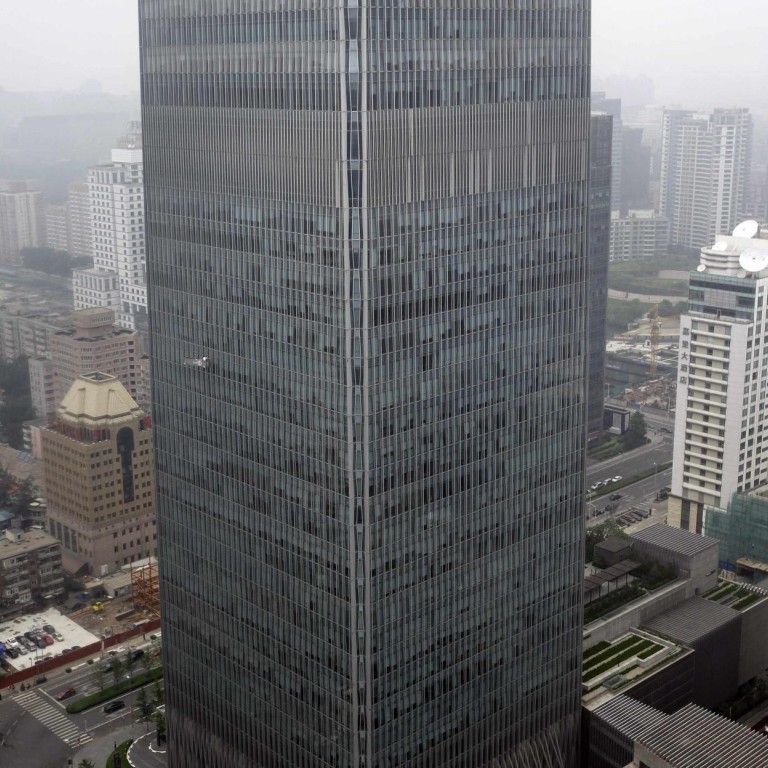
The US$229m question about Spring Reit's share offering
Deal looks more like AD Capital's exit plan by putting a big chunk of existing shares in the sale
The US$229 million initial public offering of Spring Reit, a real estate investment trust that has two office buildings in Beijing's China Central Place, looks more like a private equity exit than a genuine rental growth story since the majority stakeholder, AD Capital, put more than 70 per cent of the vendor shares in the sale.
The offering comes as an anti-climactic surprise after a surge in Beijing's prime office space in the build-up by multinational corporations since the 2008 Beijing Olympics. The strong influx of foreign capital into the city helped double office space between 2008 and 2012.
Another surprise was that Deutsche Bank, Spring Reit's largest tenant, agreed to extend its leasing contract with a "meaningful" rental rise. And other major tenants are said to be in discussions with the property manager, with a high chance of their rents also being revised upwards amid strong demand for grade A office in prime locations.
So everything in the deal looks fine - except for that big chunk of existing shares, which raises questions among jittery investors. They wonder if the fact that the majority of the float consists of "old" shares signals a lack of confidence ahead of the reit's acquisition plans in the mainland's office market.
Spring Reit is offering 439.5 million share units, 77.7 per cent of which are old shares held by RCA Fund, a fund of private equity firm AD Capital. The shares are being offered at an indicative range of HK$3.81 to HK$4.03 each, which translates into an implied yield of 6.9 to 7.3 per cent, based on next year's forecast earnings.
AD Capital, the sponsor of the trust offering, is a Japanese private equity firm owned equally by the Development Bank of Japan and Asuka Asset Management.
Earlier this year, Mando China, a spun-off unit of South Korean car-parts maker Mando Korea, scrapped its US$270 million Hong Kong float after it failed to convince investors about the fact that 75 per cent of the existing shares went into the share sale.
Spring Reit forecast its average leased unit rent would rise further to 320 yuan (HK$404) per square metre per month by the end of the year, up about 19 per cent from in June. Its average rent has been increasing for three years, from 226 yuan in 2012 and 201 yuan in 2011.
In response to the curbs in the residential market, developers have switched to commercial properties over the past three years. Investment in commercial properties grew an average 27 per cent annually from 2010 to 2012, while the growth in the retail industry was 15 per cent, official statistics showed.
Adding to questions over the unusually large amount of old shares up for sale is news that Spring Reit recently refinanced a three-year bank loan, suggesting AD Capital might take some profit from its equity sale after a debt refinancing.
A last-minute appointment during the pre-marketing period of three independent non-executive directors, including former Hutchison Whampoa taipan Simon Murray, raised further questions in the market.

